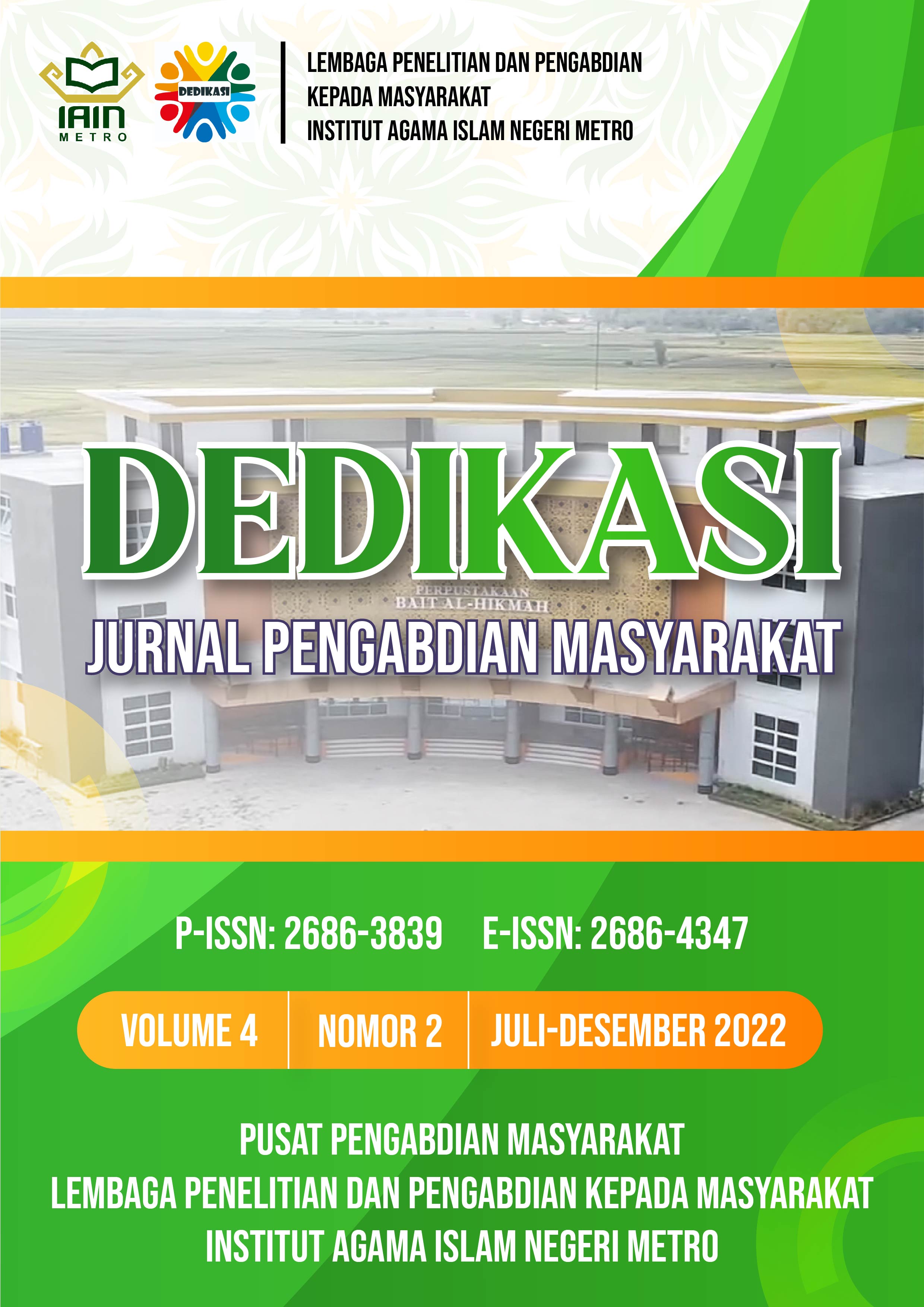Pendampingan Pendalaman Materi Matematika Berbasis Etnomatematika untuk Siswa Kelas VII SMPN 2 Sekampung Udik
DOI:
https://doi.org/10.32332/d.v4i2.5318Keywords:
Ethnomathematics, Mathematics Materials, Suksuk LampungAbstract
Learning conducted online during the pandemic caused several problems for schools in areas where internet access was difficult, including students finding it difficult to understand the material, especially mathematics subjects because they quickly got bored and did not get all the material in the curriculum. This service will link mathematics with culture which is called ethnomathematics. The purpose of this service is to assist students in understanding mathematical material by assisting in an effort to deepen mathematics material for seventh grade students at SMPN 2 Sekampung Udik, East Lampung. The implementation method uses participatory action research (PAR) with stages in the form of preparation, implementation, evaluation and reflection. The culture used and closer to the subject of mentoring is the local culture of Lampung in the traditional game Taplak / Suksuk Lampung on a flat wake. This mentoring activity went well and received a positive response from participants and teachers
Downloads
Downloads
Published
Issue
Section
License
All articles in the DEDIKASI can be disseminated on condition that they still include the identity of the article and the source (DEDIKASI). The publisher is not responsible for the contents of the article. The content of the article is the sole responsibility of the author.
Authors who publish this subject agree to the following terms:
First, the Authors retain copyright and grant the journal right from first publication with the work simultaneously licensed under a Creative Commons Attribution-ShareAlike 4.0 International License that allows others to share the work with an acknowledgment of the work's authorship and initial publication in this journal.
Secondly, the authors can enter into a separate or an acknowledgment of its initial (e.g., post-institutional repository or publish it in a book) publication in this journal.
Third, the authors are permitted and encouraged to post their work online (e.g., in institutional repositories or on their website) before publishing work is cited.








